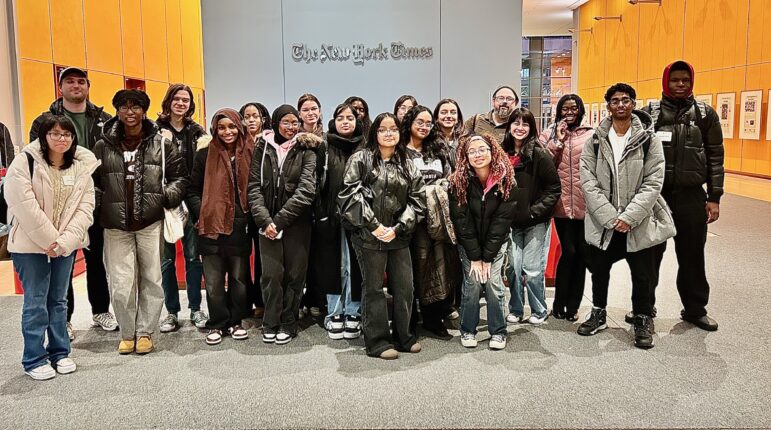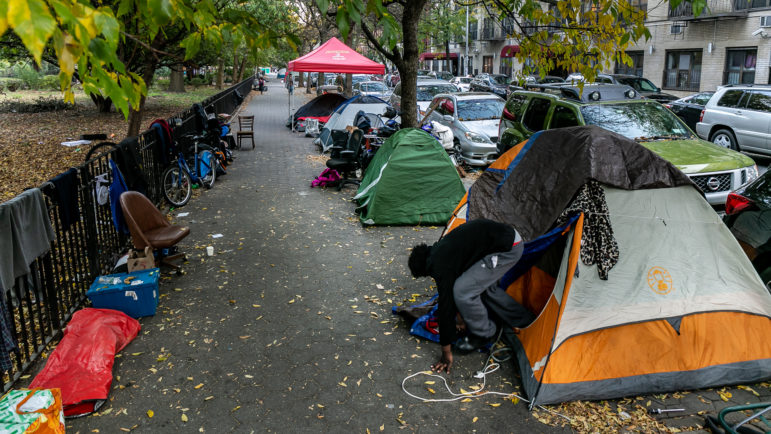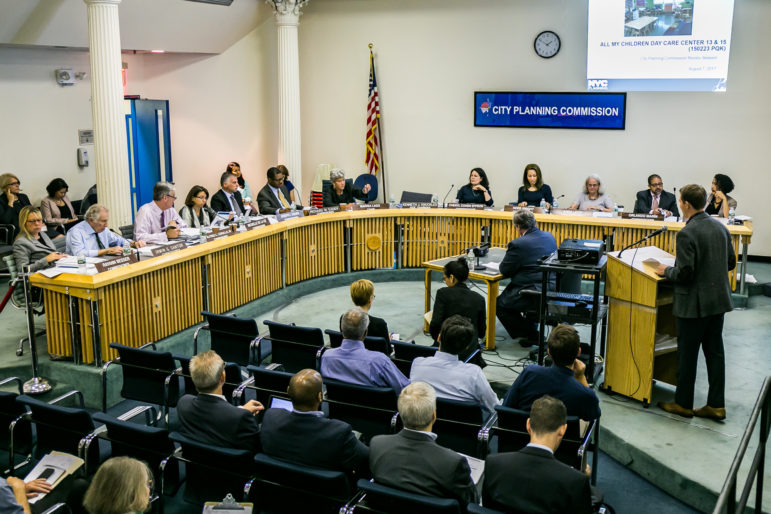Lobbying comes in all forms, but with a pirouette? In the tumultuous world of welfare policy, one project is trying to get its message to Albany in an unconventional way: with a song and dance.
Created by Risa Jaroslow, an internationally acclaimed choreographer and dance instructor, “Home/Wire Walking” stars professional dancers alongside the women whose struggles with Section 8 housing subsidies, pink slips and inadequate child care inspired the piece. Through the piece, which held its third performance in June at an East Village community garden, performers bring to life some of the pitfalls of living on welfare.
Jaroslow conceived of the show soon after founding a dance workshop at University Settlement two years ago. Her students belonged to Project Home, a program at the settlement house that helps families navigate social service bureaucracies, provides job training and teaches local residents to organize around issues like education and welfare. “The stories that came from that were so compelling,” particularly given the rise of the city’s workfare program, says Jaroslow. “Everybody was in a frenzy.”
So, with support from Danspace Project, she and her students decided to go public with their frustrations. For Florence Choice, being part of the piece was “life altering.” Previously, she had struggled to find a job and help feed her husband and three children. By giving her something she’d never had before–the time and means for intense self-reflection–the dance program “made me realize I needed to pick up the pace if I wanted to make changes,” says Choice. Now, she’s working on starting her own clothing business.
Throughout the show, Choice and the other dancers execute moves that parallel the emotional turmoil of everyday life: falling, picking yourself back up (or being helped up by others), running, crawling, waiting for uncertainties, and, mostly, balancing precariously in awkward positions.
In case the choreography and accompanying lyrics, taken from interviews with some of the women, were not enough to drive the message home, organizers handed audience members a “wish list” of legislation the performers say could make their lives a little easier. Suggestions range from raising the minimum wage to increasing public assistance grants to creating more and higher paying jobs for New Yorkers transitioning off of welfare.
This program “adds to the debate and awareness of what poor people go through,” said Melissa E. Aase, program director of Project Home. “Hopefully that kind of correct information could influence policy makers.”
And if it doesn’t do so directly, Jaroslow, who offers a similar workshop at Hunter College with the Welfare Rights Initiative, hopes the collaborative process of making the show will be enough to spur a movement: “Social change is about thinking outside the box.”








